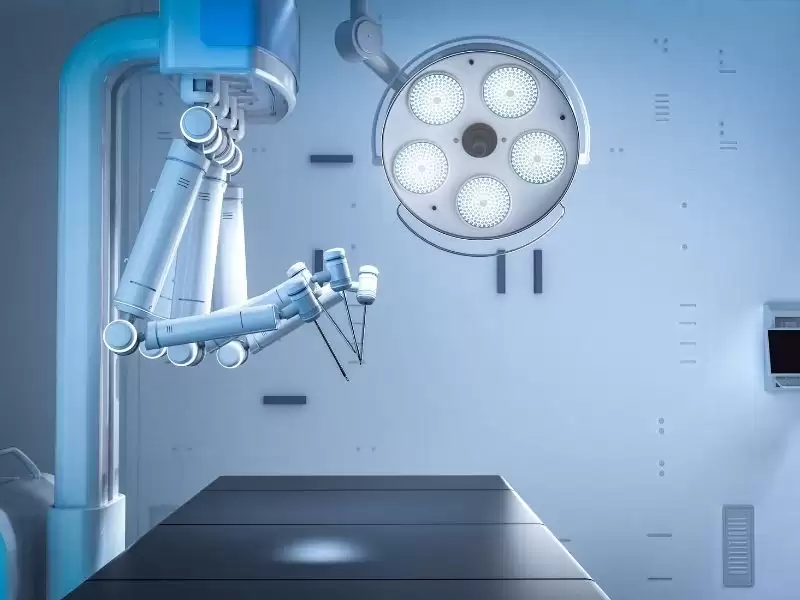Ankara prostate cancer, in the most general sense, is a type of cancer that develops with uncontrolled proliferation of cells in the prostate gland. This disease is one of the most common types of cancer experienced by men, and today the success rate is high with early diagnosis and qualified treatment methods.
The treatment of prostate cancer by robotic surgery is also defined as robotic radical prostatectomy. In previous years, patients diagnosed with prostate cancer were treated with complete removal of the prostate through open surgery. The biggest advantage of robotic surgery, which started to be performed with the development of medical technologies and the use of technology in a more qualified way in the field of medicine, is that it does not damage the tissues around the prostate.
How Ankara Robotic Prostate Cancer Surgery Is Performed?
Prostate surgery by means of robotic surgery is performed by means of a camera that provides a detailed view of the relevant area and instruments that enable the surgical procedure to be performed. The patient's abdomen is entered through minimal incisions.
Robotic prostate cancer surgery can be performed in patients where the cancer has not spread and the general health condition is suitable. The duration of the surgery varies depending on the patient's condition, the location of the tumor and whether the lymph nodes will be treated or not. In addition, the experience of the surgeon performing the operation is also effective on the duration and success of the operation.
After Prostate Cancer Surgery Via Robotic Surgery
- Postoperative urine entrapment problem may be experienced. This is associated with the catheter.
- After the surgery, liquid foods should be taken first.
- Medications recommended by the doctor should never be interrupted.
- Postoperative control processes should not be delayed.
- During the postoperative period, one should not sit on a hard surface, the operation area should be protected from traumatic events, and sports activities such as cycling and horse riding should be avoided.
Is Prostate Cancer Surgery Risky Wıth Robotic Surgery?
Like every surgical intervention, robotic surgery also has certain risk factors. The most important risk is complications associated with the administration of anesthesia. However, an experienced anesthesiologist is effective in preventing the said risk.
In addition to the risks associated with anesthesia, in case of abnormal bleeding or adhesions, open surgery can be switched during the operation. This situation is very rare.
What Are The Advantages Of Ankara Robotıc Surgery?
Prostate surgeries through robotic surgery have many advantages than open surgery. In robotic radical prostatectomy, which has many advantages for both the surgeon and the patient during the operation process and postoperative recovery, the abdominal region is inflated with gas and the camera and the instruments that will be used during surgery are placed in the application area with minimal incisions made in the abdomen.
- By imaging the application area with a high-resolution camera during the operation, very little blood loss occurs compared to other surgical methods.
- The hospital stay is shorter in robotic surgery compared to open surgery.
- In the surgery performed by robotic surgery, the urinary bladder and urinary tract are sutured to each other in a watertight manner. In this way, the usage time of the catheter is very short.
- After the surgery performed with the robotic surgery method, pain control is provided more easily than other methods. In addition, cancer control can be implemented in a much more qualified way.
- After prostate surgery performed by robotic surgery, urinary control is provided much better. In addition, the return to sexual life takes a shorter time compared to open surgery.
Prostate surgeries performed through robotic surgery have been preferred more frequently in recent years due to the low risk factors, shorter recovery period and a much more comfortable process for the patient.


